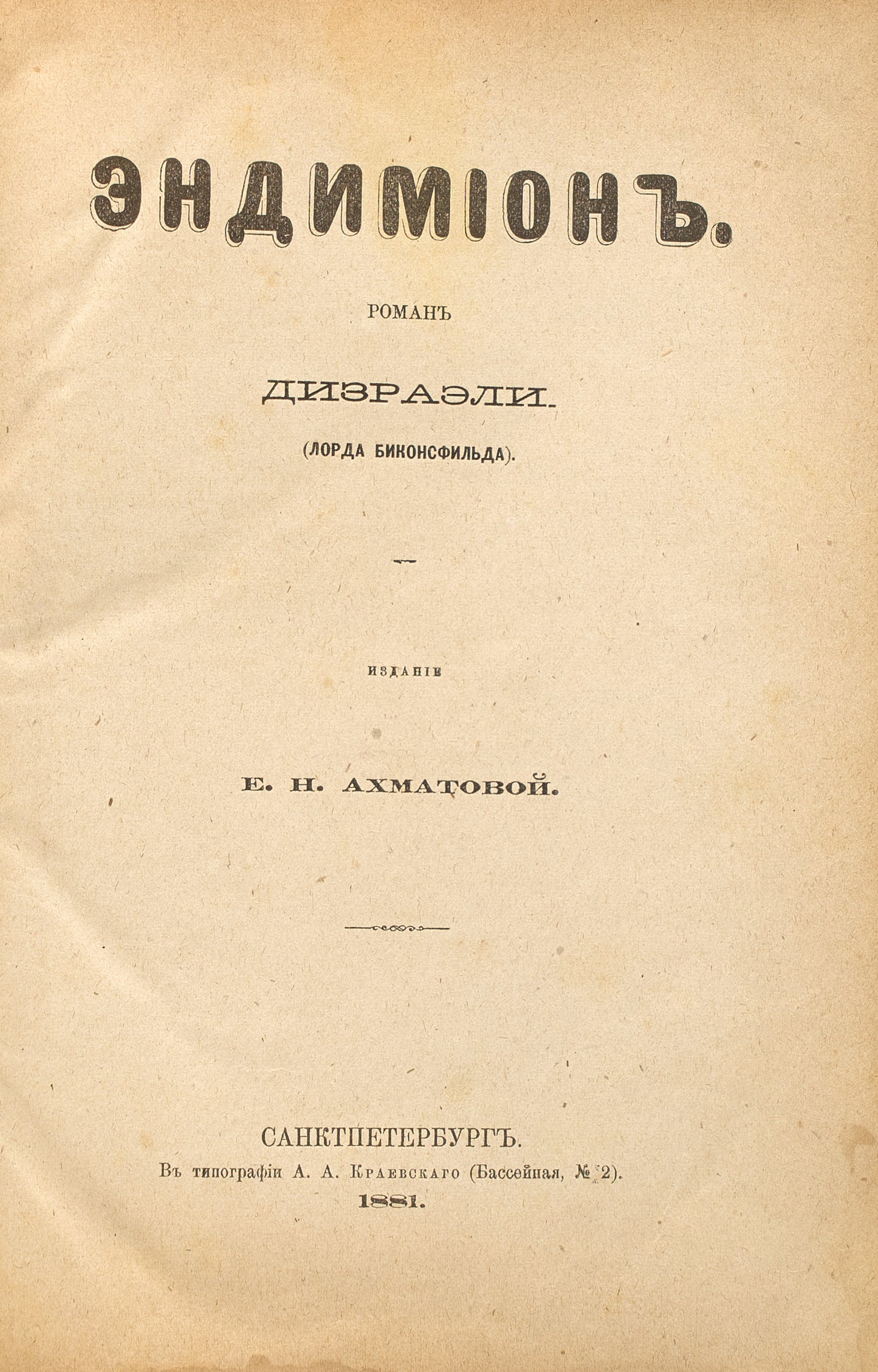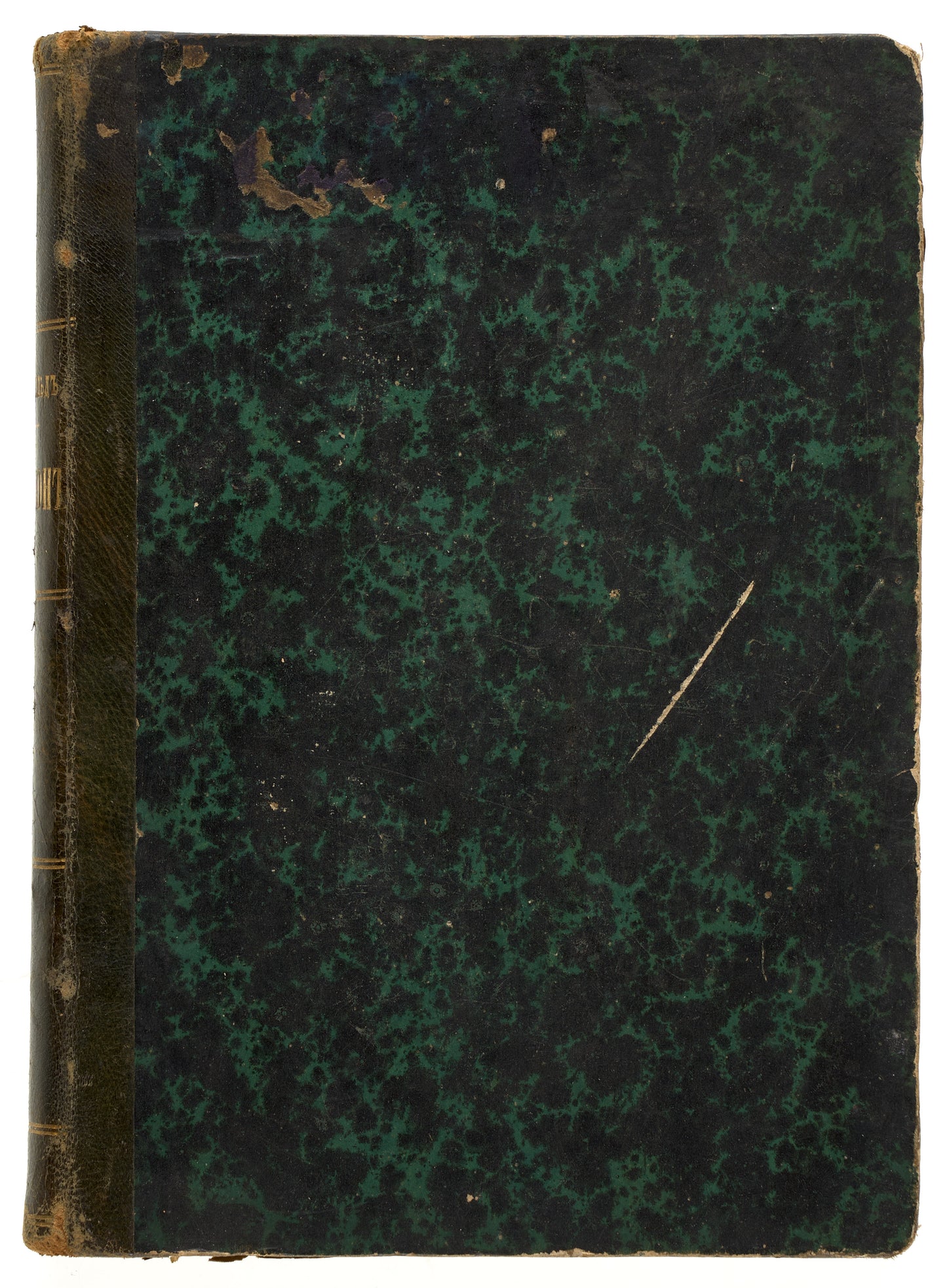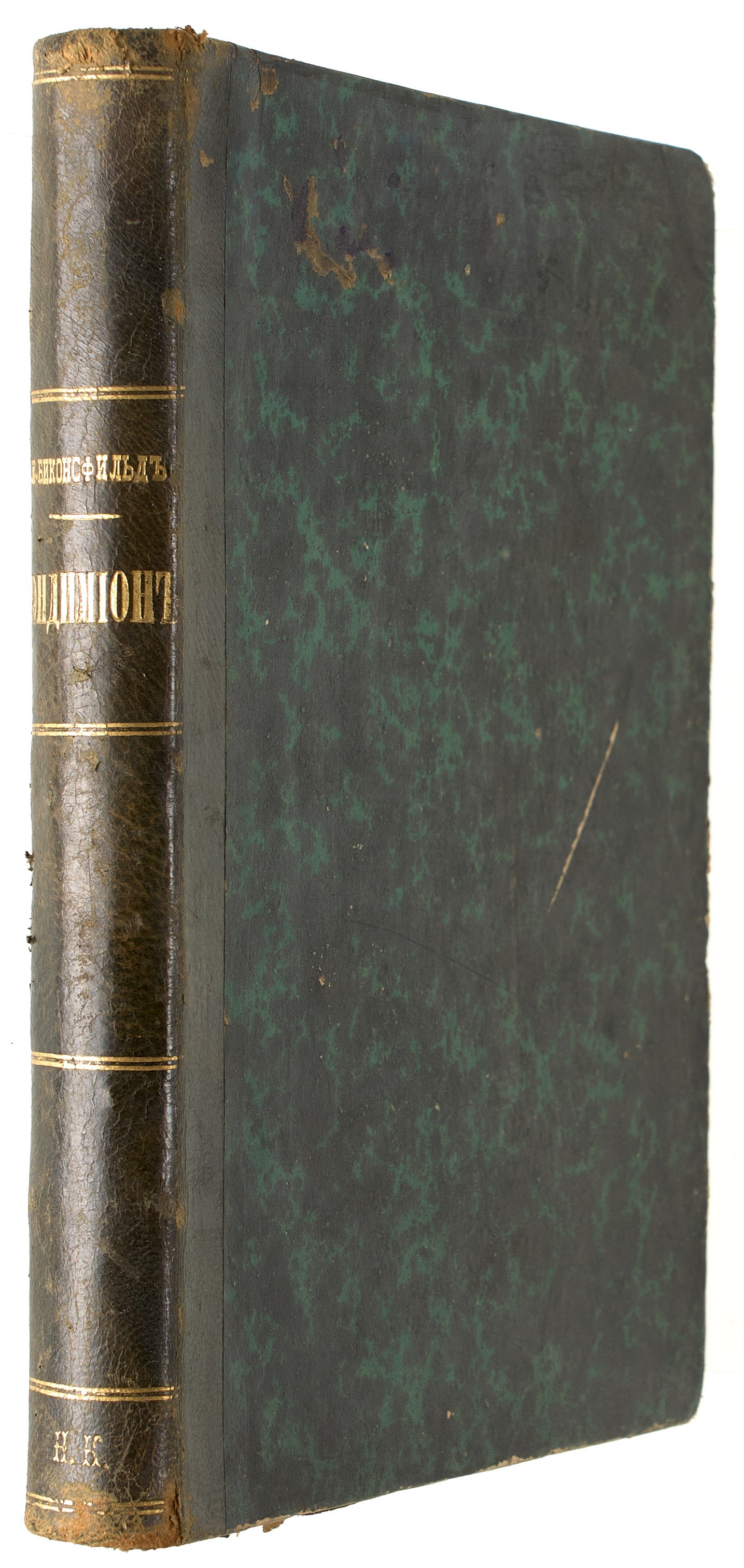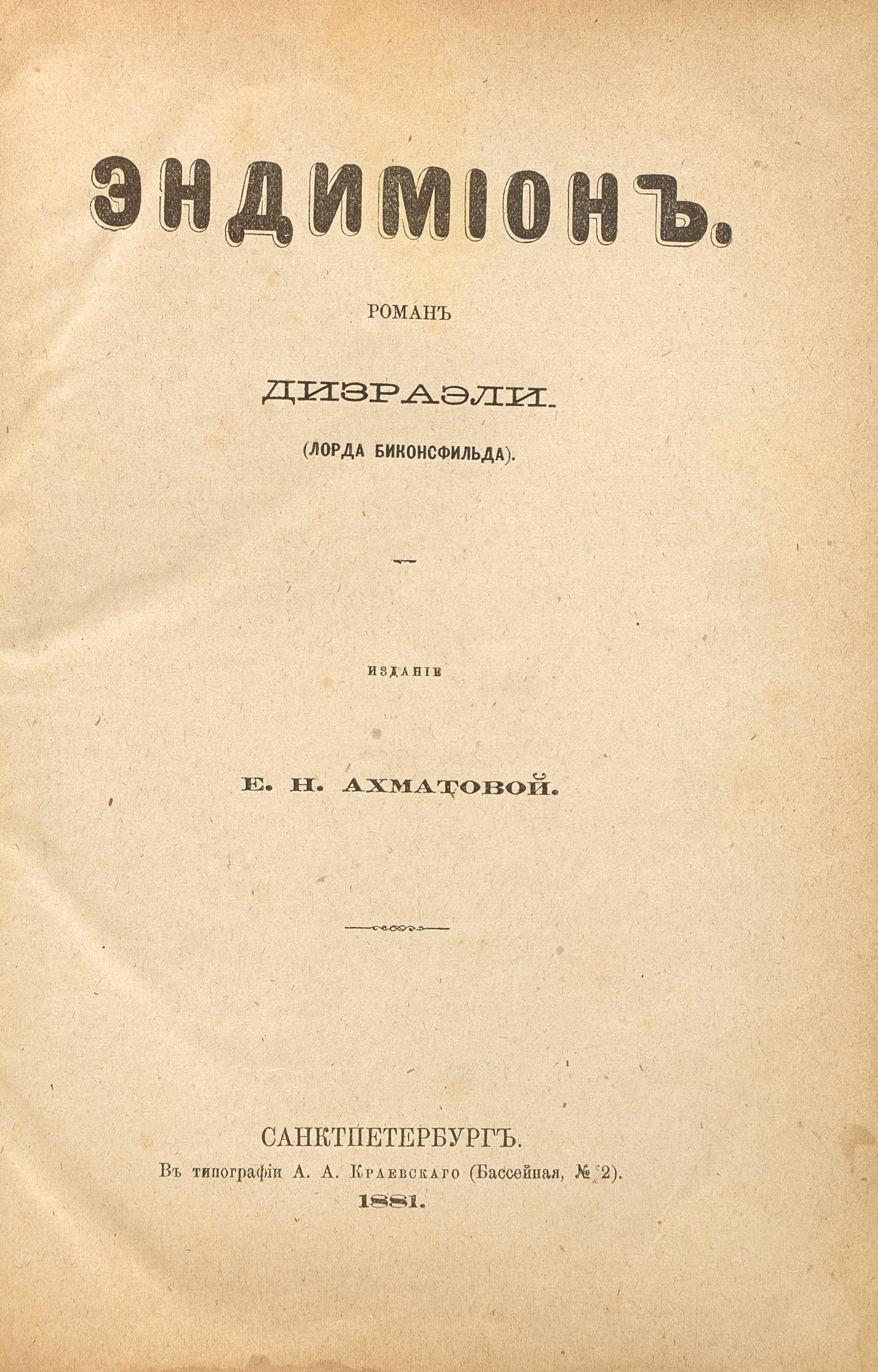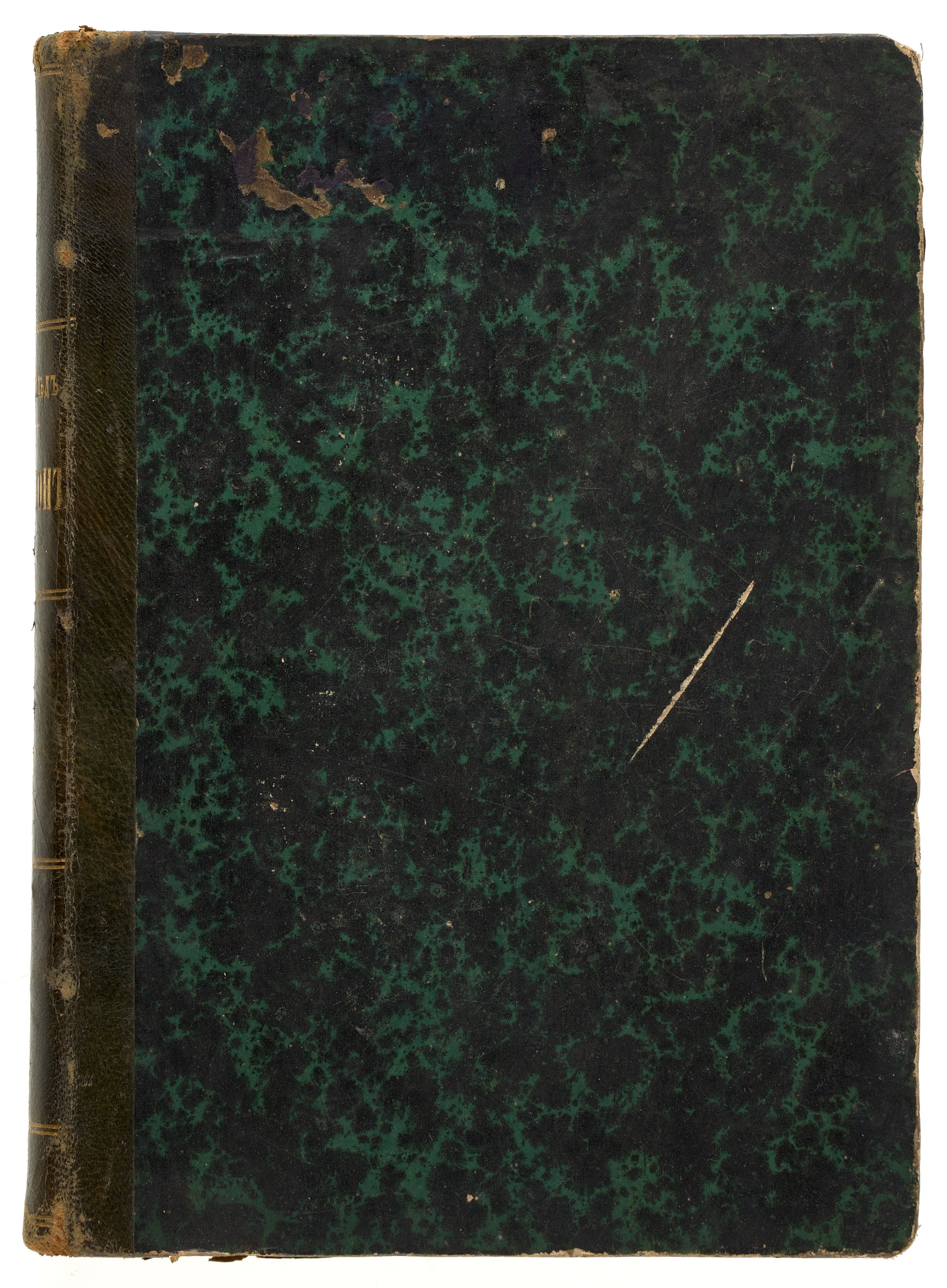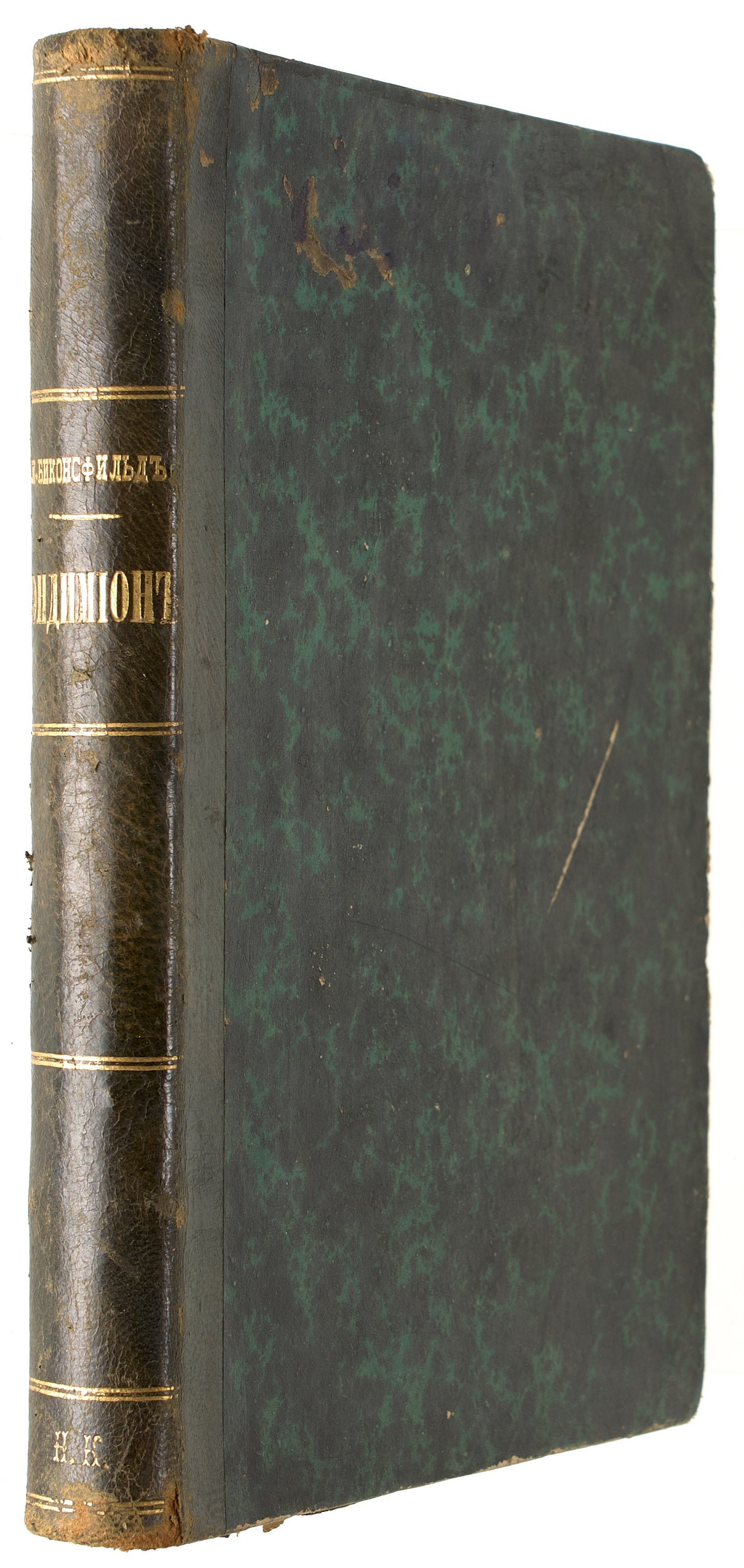Disraeli, Benjamin
Endymion. Disraeli's novel in Russian.
Endymion. Disraeli's novel in Russian.
Couldn't load pickup availability
Disraeli, Benjamin (Earl of Beaconsfield) [Endymion]. Endimion.
Sankt-Peterburg, E.N. Akhmatova, 1882.
8vo, 548 pp.
In contemporary quarter leather, paper-covered boards. Gilt-lettered on spine with gilt-tooled initials N.K.
In good condition, lightly rubbed, small paper losses to boards, owner stamp to first free endpaper 'Biblioteka N.G. Krapivki', soiling to some pages.
Very rare edition.
Benjamin Disraeli (1804-1881), hailed as one of the founders of the political novel in world literature and often regarded as 'the creator of the PR novel or the novel of political technologies', served as Prime Minister of the United Kingdom twice. However, he remained obscure regarding in Russia until the 1840s. The first Russian review of Disraeli's works, specifically the novels 'Coningsby' and 'Sybil', appeared in the journal 'Otechestvennye Zapiski' in 1845. In 1859, the first Russian translation of his work emerged - an anonymous abridged version of the romance novel 'Henrietta Temple' (1837) was published in the journal 'Biblioteka dlia Chteniia'.
Over time, Disraeli began to be perceived by Russian readers and critics not merely as a writer but as a political figure, with his works seen as autobiographical material providing insight into the 'Disraeli phenomenon'.
At the Congress of Berlin in 1878, Disraeli garnered significant acclaim for his role in curbing Russia's influence in the Balkans following the Russo-Turkish War. This event sparked greater interest in Disraeli among Russian critics and readers. In the same year, a critical article in 'Otechestvennie Zapiski' characterized Disraeli as 'a buffoon, sometimes very awkward and untimely, who continually changes his beliefs depending on the circumstances', also noting his 'passionate and systematic antagonism towards Russia'.
Furthermore, Disraeli's last completed novel, 'Endymion' (1880), was translated shortly after its original publication. In 1881, five different translations were issued simultaneously: four in Saint Petersburg and one in Moscow. All of these translations were anonymous, with one being a shorter version.
This particular translation was published as a part of the notable series 'Sobranie perevodnykh romanov, povestei I rasskazov' ('Collected Foreign Novels, Novellas, and Stories Translated into Russian') by the esteemed female publisher Elizaveta Akhmatova. Unlike other translations, this one was republished once, in 1882.
We couldn't trace any copy of this edition in OCLC or in Russian main libraries.
